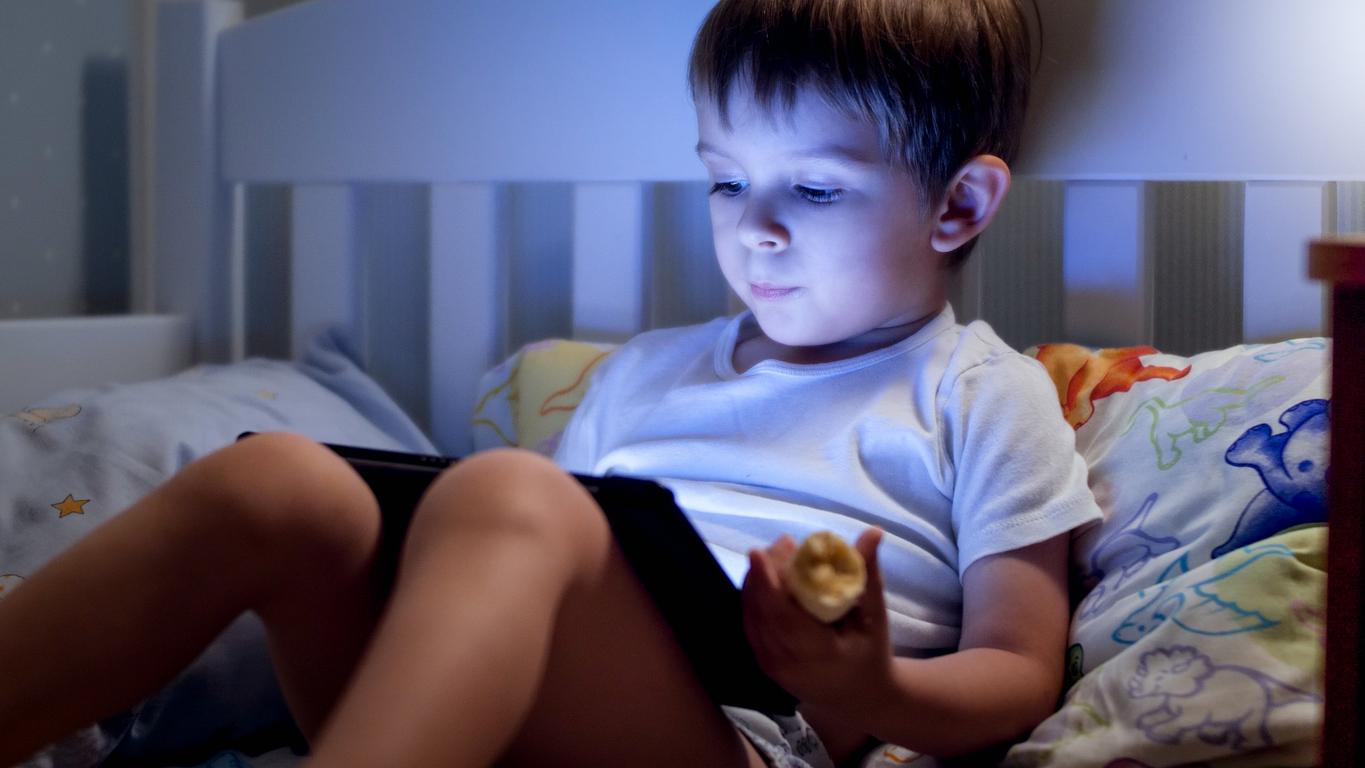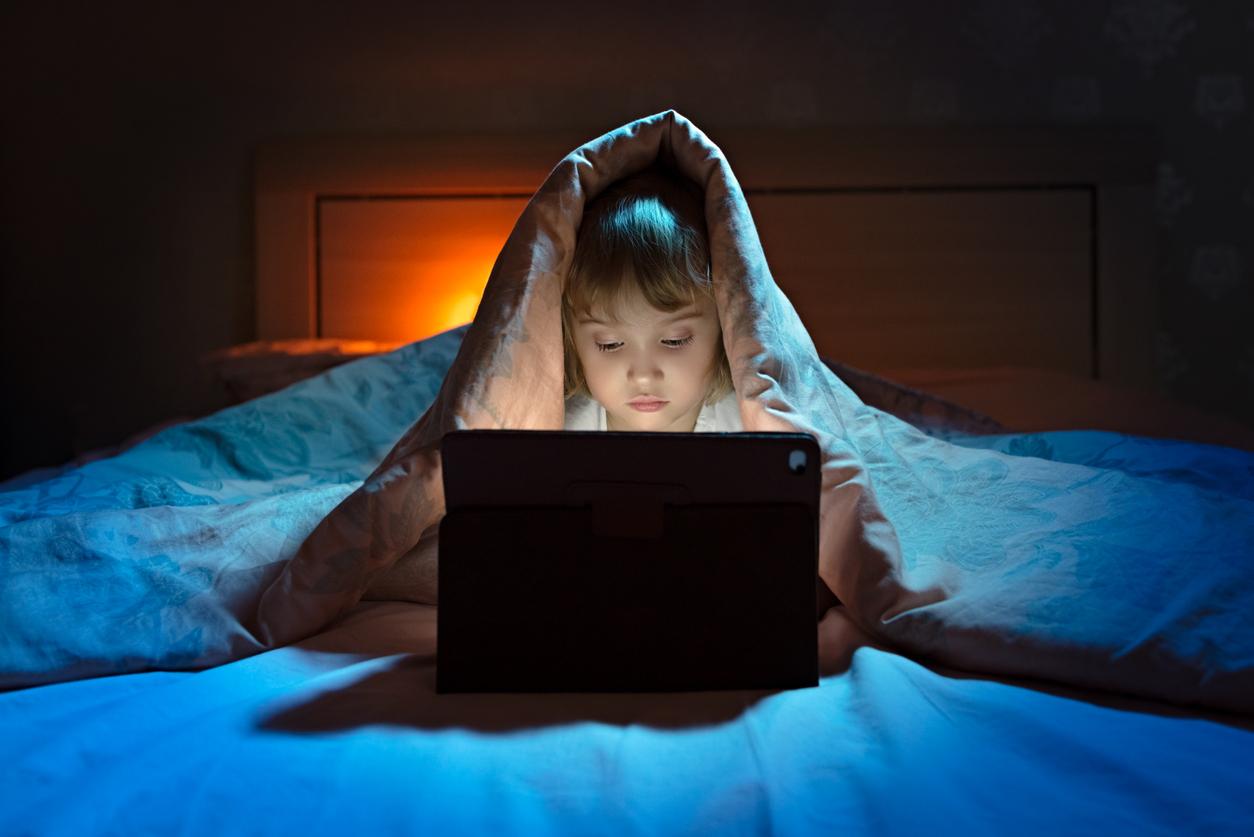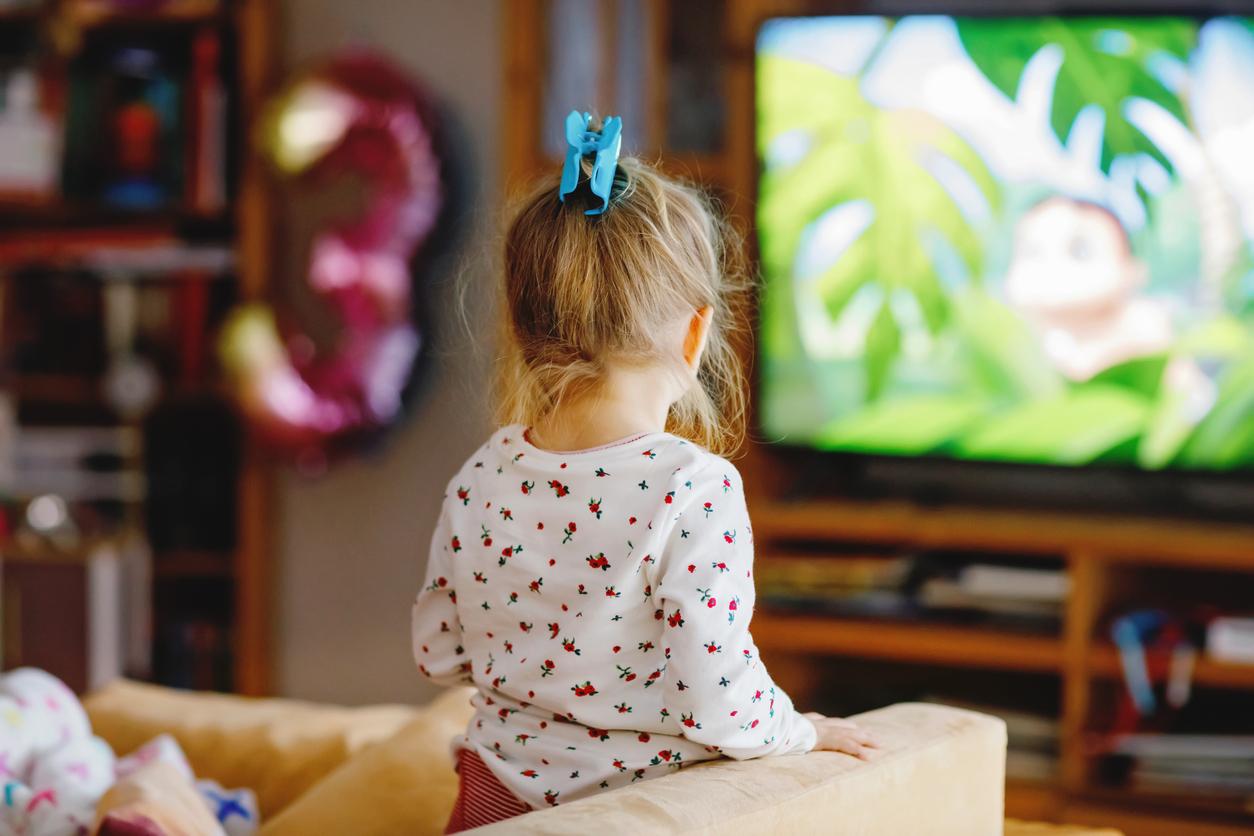Using screens before sleeping and going to bed after 10 p.m. increases the risk of obesity in children, according to a study by the University of Barcelona.

- Going to bed after 10 p.m. and using screens more than thirty minutes before bedtime are associated with an increased risk of obesity and lower adherence to the Mediterranean diet in children, according to a new study.
- 27.5% of children under 5 years old and 35.2% of 5 – 12 year olds spend more than thirty minutes in front of a screen before going to bed.
- Scientists recommend that parents advance bedtime and minimize children’s screen exposure before bed.
Children aged 2 to 12 who fall asleep after 10 p.m. and use screens (tablets, cell phones, computers, television, etc.) more than thirty minutes before bedtime have an increased risk of obesity. They are also less likely to follow the Mediterranean diet, known for its many cognitive, metabolic and cardiac health benefits.
Here are the findings of a study from the University of Barcelona published in the new edition of the journal Appetite.
Obesity: Staying up late and watching screens increase children’s risk
For this research, the team surveyed the parents of 1,133 children (545 were between 2 and 4 years old and 588 were between 5 and 12 years old) about their offspring’s sleep habits and digital device use. They also had to specify other points such as diet and body mass index (BMI).
The results showed that about half of toddlers and school-aged children spent up to thirty minutes in front of a screen before bed (50.5% and 45.1% respectively). More than a quarter of those under five and more than a third of “big” used it for more than half an hour in front of a screen. Only 14.2% of preschoolers and 11.7% of schoolchildren did not watch screens and went to bed early.
The study, carried out in Spain, also shows that the children were night owls for their age. “We found that children tend to go to bed around ten in the evening. Considering that it is recommended to sleep between ten and twelve hours, it is clear that many children are not getting enough sleep”deplore the authors in a communicated. Especially since this habit, coupled with a large consumption of screens, is not without consequences on the bodies of young people.
“We observed that preschool and school-age children who have more nocturnal sleep patterns and spend more time in front of screens before bed, have a higher risk of developing overweight or obesity, compared to those who go to bed early and don’t look at screens before bed”explains María Fernanda Zerón-Rugerio, first author of the scientific article.

Food, sleep, physical activity: other elements disrupted by these habits
These two bad nighttime habits also had a harmful effect on other important elements of children’s health: the quality of sleep, diet and physical activity.
Scientists found that they led to shorter nighttime sleep duration and poorer sleep quality in preschoolers and schoolchildren. They were also associated with delayed breakfast and dinner times, especially as children grew older. Night owls also had an increased risk of poor nutritional habits and reduced adherence to a healthy diet such as the Mediterranean diet.
Additionally, school-aged children who had this evening routine had greater “social jet lag” and were less active. “This is common among late sleepers, who must adjust their wake-up time based on school schedules rather than their actual sleep needs. As a result, they end up sleeping less and accumulating sleep debt throughout the week : a situation that has been associated in previous studies with irritable mood, poor academic performance and daytime sleepiness”explain the researchers.
They therefore recommend to parents “advance bedtime and minimize exposure to screens before bed, ideally avoiding them completely at least an hour before bed.”















